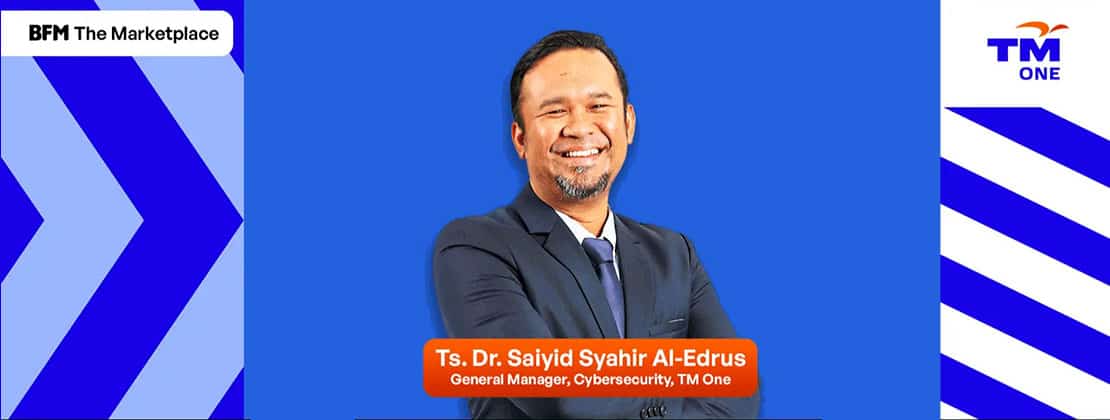
In 1994, Bill Gates said that “banking is necessary; banks are not”. 16 years later, his words remain true.
The banking industry has seen an eruption of change over the past two decades: from cryptocurrency to blockchain, from biometric log-ins to customised services. Afternoons spent lining up at the bank to set up a new account are now only a vague, unpleasant memory.
Digital banking is set to impact individuals and enterprises across the country. GovInsider examines three (3) trends set to transform the banking industry.
Passwords are easily hacked or forgotten, and so are not a very good way of securing bank accounts. Enter a new way of identity authentication: biometrics. These verify customers’ identities with fingerprint scanners or facial recognition technologies, so log-in information can’t be stolen or duplicated.
In 2019, Hong Leong Bank introduced an eToken that allows their corporate and SME customers in Malaysia to authenticate log-ins and approve payments with facial recognition tech. This eliminates the need for a physical token.
The eToken will also be integrated with Hong Leong Bank’s mobile banking app to create a more seamless experience. Customers can confirm transactions with just a “single tap”, according to the bank’s website.
This new service is expected to have a significant impact on customers’ banking experience. In the financial year before the app’s release, Hong Leong Bank processed more than 27 million transactions through its business internet banking platform. More than eight out of ten corporate and SME transactions were completed online.
This initiative was driven by the bank’s commitment to innovate around customer needs and preferences. “The introduction of facial recognition eToken is based on our understanding and insights on customers’ pain points when using a physical dongle and conventional passwords, which can be misplaced or forgotten,” said Yow Kuan Tuck, the bank’s Managing Director, Business Corporate Banking.
Besides using physical biometric features to authenticate log-ins, banks can also use behavioural biometrics to detect potential fraud, wrote BiometricUpdate.com. Banks can study how a customer usually interacts with their account, such as what time they usually log in, and the average value of their transactions.
The behavioural biometrics software alerts security teams on any drastically different behaviours, which may be a sign of a fraudulent transaction. They can decide to block the transaction or ask for additional authentication from the user.
An upside to behavioural biometrics is that there are no privacy concerns, according to BiometricUpdate.com. Each user’s behavioural data is converted to a mathematical representation, which holds no value for criminals.
Could a banking app suggest personalised promotions the way Netflix gives movie recommendations? With transactions moving towards more online, it’s much easier to observe customers’ cashflow, searches, app usage, location and even the demographic variables, wrote Silicon Valley Innovation Center. This information holds precious insights into customer behaviour.
Singapore startup Crayon Data’s Artificial Intelligence (AI) engine allows businesses to suggest updates and services that suit customers’ needs and lifestyle. This helps businesses engage with customers better, which improves response rate, loyalty and frequency of card usage.
Crayon Data focuses on serving lifestyle-related businesses, such as banks, telcos and retailers. These industries have access to multitudes of customer data, but don’t have the ability to make the most out of them, wrote The Business Times.
The startup’s simplified solution analyses banks’ data to create a personalised profile for each customer, based on their preferences. This can be done within a week. Banks can then use this profile to conduct more targeted marketing.
Banks hold reams of sensitive financial data. It’s no wonder that they experience 300 times more cyberattacks than other types of organisations.
Mobile and online applications have made payments easier, but they bring inherent risks. 78 per cent of banks in the Asia Pacific claims that real-time payment platforms have led to more fraud cases, according to a Jumio report. The report highlighted the need for additional identity and authentication technologies.
Additionally, Verizon found that web applications were the number one threat pattern for financial services data breaches in 2018, wrote Codete. Accenture found at least one known security risk in all 30 of the major banking applications it studied.
The most common causes of security vulnerabilities are insecure data storage, insufficient authentication, and direct code tampering, according to Codete. Internet of Things (IoT) presents yet more risks to digital banking. As nations move to become smart and connected societies, the large number of devices will increase the attack avenues for cybercriminals. Protecting these devices is even more urgent given the extensive volumes of personal data they collect, Codete reported.
TM One, Telekom Malaysia Berhad (TM)’s enterprise and public sector business arm, uses blockchain to address these cybersecurity issues. Its Blockchain Secure Authentication (BSA) is a new password-less authentication method, allowing users to securely access their online accounts and to securely approve an online transaction over web or mobile. It does not require a password for authentication, simple to use, extremely secure and almost impenetrable solution, represents the next layer of defence in securing online businesses.
Blockchain is a secure way of storing digital information since its records cannot be deleted. TM One has partnered with Korean tech company FNS Value Co to become the sole distributor to rollout BSA in Malaysia and Indonesia, says Thaib Mustafa, Head of Cybersecurity services at TM One.
It is the first patented authentication solution using blockchain technology in the world. BSA provides a secure and trusted access to the web and mobile services – protecting customers’ personal data and information; prevent security breaches, data leakages, ID and Password brute-force credential or digital identity attacks, he added.
The pandemic has accelerated digitisation in all industries, and financial services are no different. Biometrics, personalised services and increased cybersecurity controls are set to bring Malaysia’s banking sector into the future.